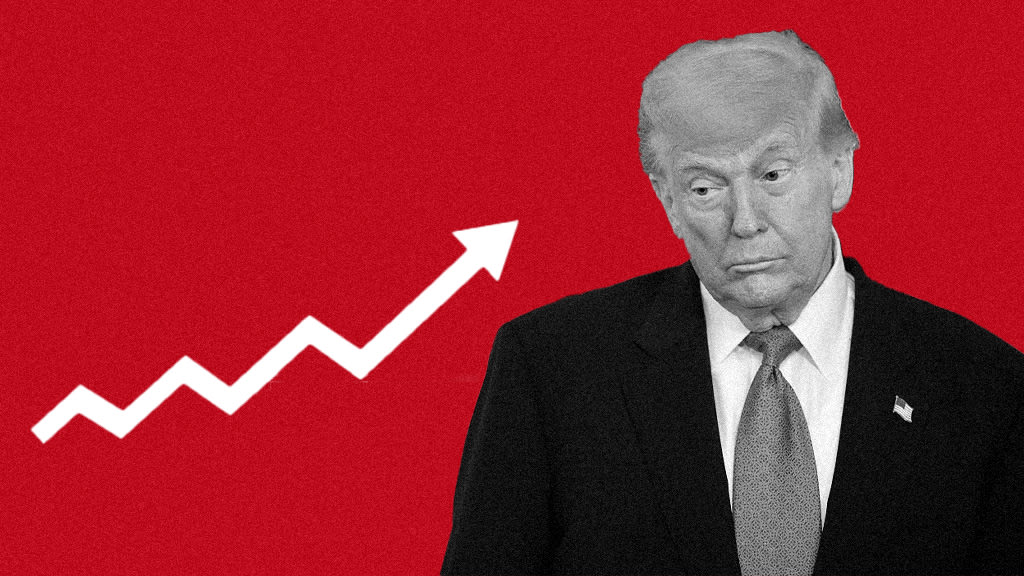Dow plummets more than 1,000 points as inflation burns hot
U.S. stocks plunged on Tuesday amid Wall Street's sudden realization that inflation isn't slowing as much as hoped.
A hotter-than-expected inflation report sent a thud through Wall Street and markets worldwide. The Consumer Price Index increased 8.3% in the past 12 months, as rising prices for food, shelter and medical care offset tumbling gasoline prices.
While last month's increase was lower than July's 8.5% jump, it was higher than the 8.1% economists had expected, showing prices remain uncomfortably high.
In reaction to the report, the S&P 500 plunged Tuesday, dropping 176 points to 3,935, or 4.3%, threatening to snap a four-day winning streak. The Dow Jones Industrial Average lost 1,256 points, or 3.9%, and the Nasdaq Composite dropped 5.2%. Big tech names saw major declines, and all 11 sectors in the S&P 500 fell.
The drop was the worst day for the S&P 500 and Nasdaq since June 2020, according to FactSet.
- How to recession-proof your budget so that you're ready for whatever lies ahead
- The economy is creaking, but likely isn't in a recession
- What we've learned about recessions as Americans brace for impact
The disappointing data means traders are bracing for the Federal Reserve to ultimately raise interest rates even higher than expected to combat inflation, with all the risks for the economy that entails, analysts said.
"Right now, it's not the journey that's a worry so much as the destination," said Brian Jacobsen, senior investment strategist at Allspring Global Investments. "If the Fed wants to hike and hold, the big question is at what level."
Almost all of Wall Street came into the day thinking the Fed would hike its key short-term rate by a hefty three-quarters of a percentage point at its meeting next week, with smaller rate hikes in the following months. The thinking was that a slowdown in inflation would let the Fed downshift the size of its rate hikes through the end of this year and then potentially hold steady through early 2023.
Tuesday's report dashed some of those hopes, with ZipRecruiter chief economist Sinem Buber noting in an email that the Fed "may have to hold rates higher for longer to tame inflation, with greater pain for the housing market and labor market along the way."
Many of the data points within the inflation report were worse than economists expected, including some the Fed pays particular attention to, such as inflation outside of food and energy prices. Markets honed in on a 0.6% rise in such prices during August from July, double what economists expected.
"This suggests that inflation expectations may be becoming ingrained," said Gargi Chaudhuri, head of investment strategy at iShares.
"The market had been settling into a 'peak' mindset — peak inflation and peak Funds Rate expectations, and now investors are wondering whether both numbers don't have further to run on the upside," equity analyst Adam Crisafulli, head of Vital Knowledge, said in a note to investors.
Interest rates set to rise further
The inflation figures were so much worse than expected that traders now see a one-in-five chance for a rate hike of a full percentage point by the Fed next week. That would be quadruple the size of the usual move, and no one in the futures market was predicting such a hike a day earlier.
Traders now see a better than 60% likelihood the Fed will pull its federal funds rate all the way up to a range of 4.25% to 4.50% by March. A day earlier, they saw less than a 17% chance of such a high rate, according to CME Group.
The Fed has already raised its benchmark interest rate four times this year, with the last two increases by three-quarters of a percentage point. The federal funds rate is currently in a range of 2.25% to 2.50%.
Higher rates hurt the economy by making it more expensive to buy a house, a car or anything else bought on credit. Mortgage rates have already hit their highest level since 2008, creating pain for the housing industry. The hope is that the Fed can pull off the tightrope walk of slowing the economy enough to snuff out high inflation, but not so much that it creates a painful recession.
In the meantime, higher rates also pressure prices of stocks, bonds and other investments. Investments seen as the most expensive or the riskiest are the ones hardest hit by higher rates, and bitcoin tumbled 5.3%. Bond prices also fell sharply, sending their yields higher.
In the stock market, all but a dozen of the stocks in the S&P 500 fell. Technology and other high-growth companies fell more than the rest of the market because they're seen as most at risk from higher rates.
"Investor sentiment remains heavily negative in September, reflecting heightened risk aversion and the second-lowest expectation of near-term market performance seen over the past two years," Chris Williamson, executive director at S&P Global Market Intelligence, said in a report.
Apple, Microsoft and Amazon all fell more than 3.3% and were the heaviest weights on the market. The communication services sector, which includes Google's parent company and other internet and media companies, sank 3.9% for the largest loss among the 11 sectors that make up the S&P 500 index.
"The vast majority of investors surveyed anticipate the coming year to one of recession combined with elevated inflation, meaning the global economy and tightened monetary policy are set to act as ongoing major drags on market performance and corporate earnings," Williamson said.



